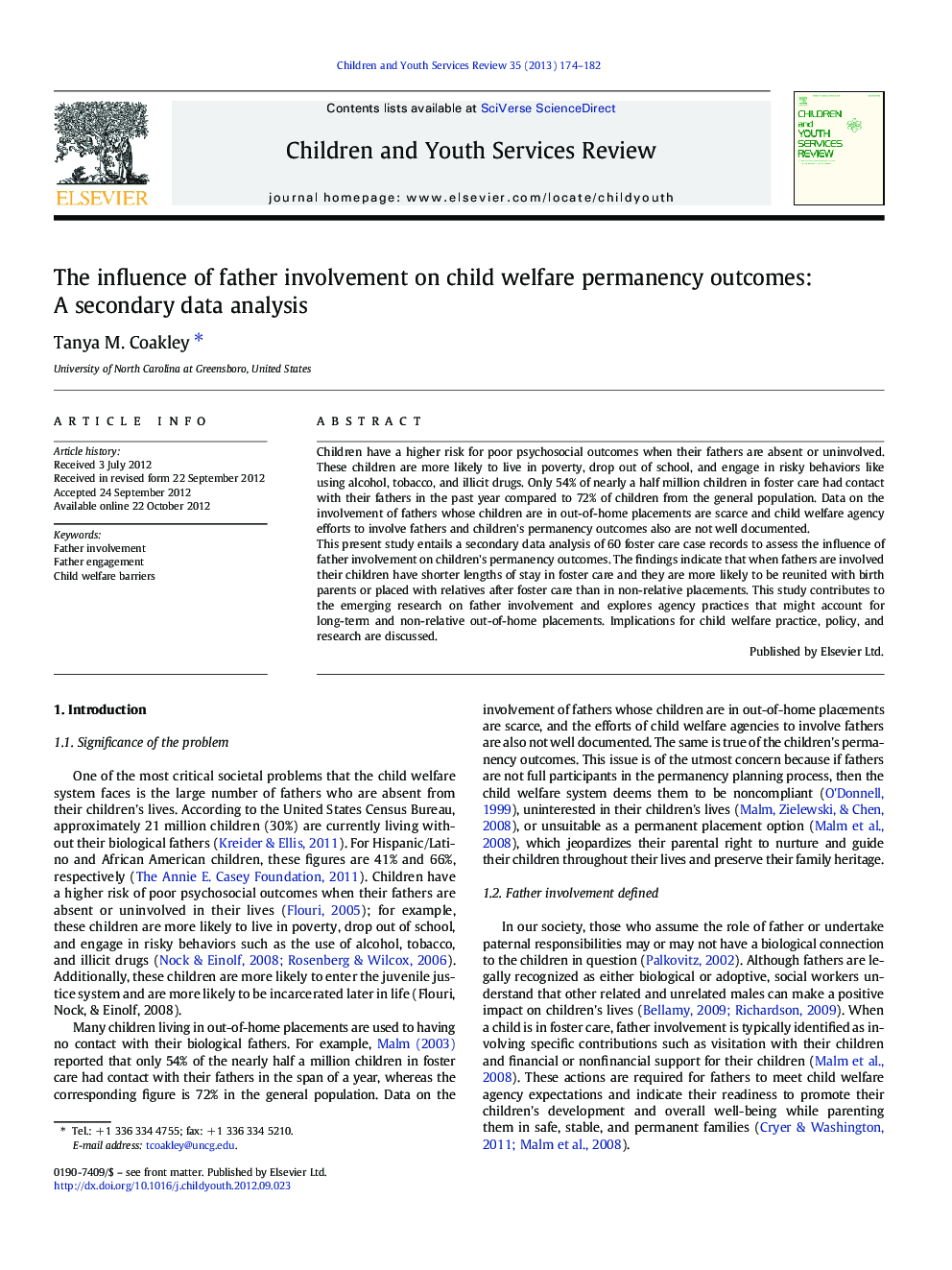| Article ID | Journal | Published Year | Pages | File Type |
|---|---|---|---|---|
| 346628 | Children and Youth Services Review | 2013 | 9 Pages |
Children have a higher risk for poor psychosocial outcomes when their fathers are absent or uninvolved. These children are more likely to live in poverty, drop out of school, and engage in risky behaviors like using alcohol, tobacco, and illicit drugs. Only 54% of nearly a half million children in foster care had contact with their fathers in the past year compared to 72% of children from the general population. Data on the involvement of fathers whose children are in out-of-home placements are scarce and child welfare agency efforts to involve fathers and children's permanency outcomes also are not well documented.This present study entails a secondary data analysis of 60 foster care case records to assess the influence of father involvement on children's permanency outcomes. The findings indicate that when fathers are involved their children have shorter lengths of stay in foster care and they are more likely to be reunited with birth parents or placed with relatives after foster care than in non-relative placements. This study contributes to the emerging research on father involvement and explores agency practices that might account for long-term and non-relative out-of-home placements. Implications for child welfare practice, policy, and research are discussed.
► Children are at risk for psychosocial problems when their fathers are uninvolved. ► Child welfare agencies present barriers to father involvement in case planning. ► The majority of fathers studied did not sign or comply with the case plan. ► Children whose fathers complied with the case plan spent less time in foster care. ► Suggestions for enhanced agency efforts to involve fathers are provided.
